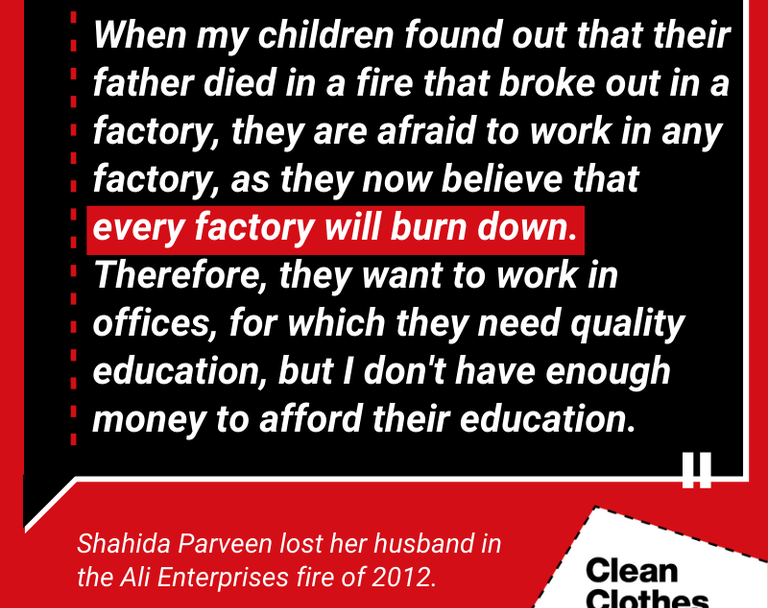Fires continue to engulf the fashion industry: in India, in East Delhi, clothing factory and then in Kerala, at Choice Footwear Material; in Vietnam, a Nike supplier. These factory fires once again demonstrate the urgent need for a legally binding safety agreement for the apparel and footwear industry, according to Ineke Zeldenrust, international coordinator of the Clean Clothes Campaign. [Why do fashion factories keep going up in flames? – SJ]
One such blaze swept through an unnamed garment factory in East Delhi in India on Monday, though no casualties were reported.
Firefighters rescued four people from the third floor of the facility at 6:50 p.m. local time in the mixed commercial-residential district of Gandhi Nagar, home of Asia’s biggest readymade garment and textile market of the same name.
Ten fire tenders rushed to the spot to put out the conflagration, with one firefighter sustaining minor injuries.
In a video shared by the Delhi Fire Service, a woman named Gudiya said two of her children were in the factory. “When the fire broke out, the fire brigade came and extinguished the fire, and took us out safely,” she said.
The incident, whose cause is still unknown, happened on the first day of Diwali, a five-day festival that is among Hinduism’s most important celebrations.
A footwear warehouse in the southwestern state of Kerala was essentially gutted on Oct. 13, when a blaze that ignited on the premises of Choice Footwear Material at 4 p.m. local time drew four fire tenders to douse the flames.
The fire took 20 minutes to tame, though the entire area was filled with smoke, a fire and rescue official told the New Indian Express. Two families that were residing in the two-story building where Choice Footwear Material was operating first spotted the flames. They alerted neighbors, who in turn notified the fire station.
“We removed the burnt materials and managed to control the smoke,” the official said, crediting the “timely intervention” of the residents for preventing the fire from spreading further. A preliminary investigation suggests that an electrical short circuit was the trigger.
Over in Vietnam, a fire at a facility belonging to Changshin Vietnam in Dong Nai required a fleet of fire trucks and hundreds of firefighters to extinguish. Though the Oct. 17 conflagration, whose cause is still unknown, was contained within half an hour, it caused a significant amount of products and materials to go up in smoke, VNExpress International reported.
Because the Nike supplier employed rubber and plastic as raw ingredients, the fire spread quickly, causing 120 employees to evacuate, officials said. Though the lack of casualties was a silver lining, it will take a week for the factory to overcome the impact of the fire on orders, Dang Tuan Tu, Changshin Vietnam’s union president, told VnExpress International. In the meantime, workers have been fanned out to other production lines.
This was the South Korean-backed manufacturer’s second fire in four months. In June, another blaze broke out at the company’s 1,000-square-meter workshop, resulting in extensive damage to several buildings.
Altogether, Changshin Vietnam provides jobs to 40,000 workers, making it the southern province’s biggest employer. Nike did not respond to a request for comment.
For labor campaigners, the fact these fires continue to persist is another way the fashion industry is failing workers. They also demonstrate the need for better mechanisms beyond voluntary due diligence and safety measures.
“These factory fires once again demonstrate the urgent need for the Accord, a legally binding agreement on safety, to be expanded across the garment industry,” Ineke Zeldenrust, international coordinator at the Clean Clothes Campaign, the garment sector’s largest coalition of trade unions and labor-advocacy groups, told Sourcing Journal. “Without a binding agreement that holds brands to account for safety violations in their supply chain, many more factory disasters will occur and lives will be lost. No one should have to risk their life simply by going to work.”


